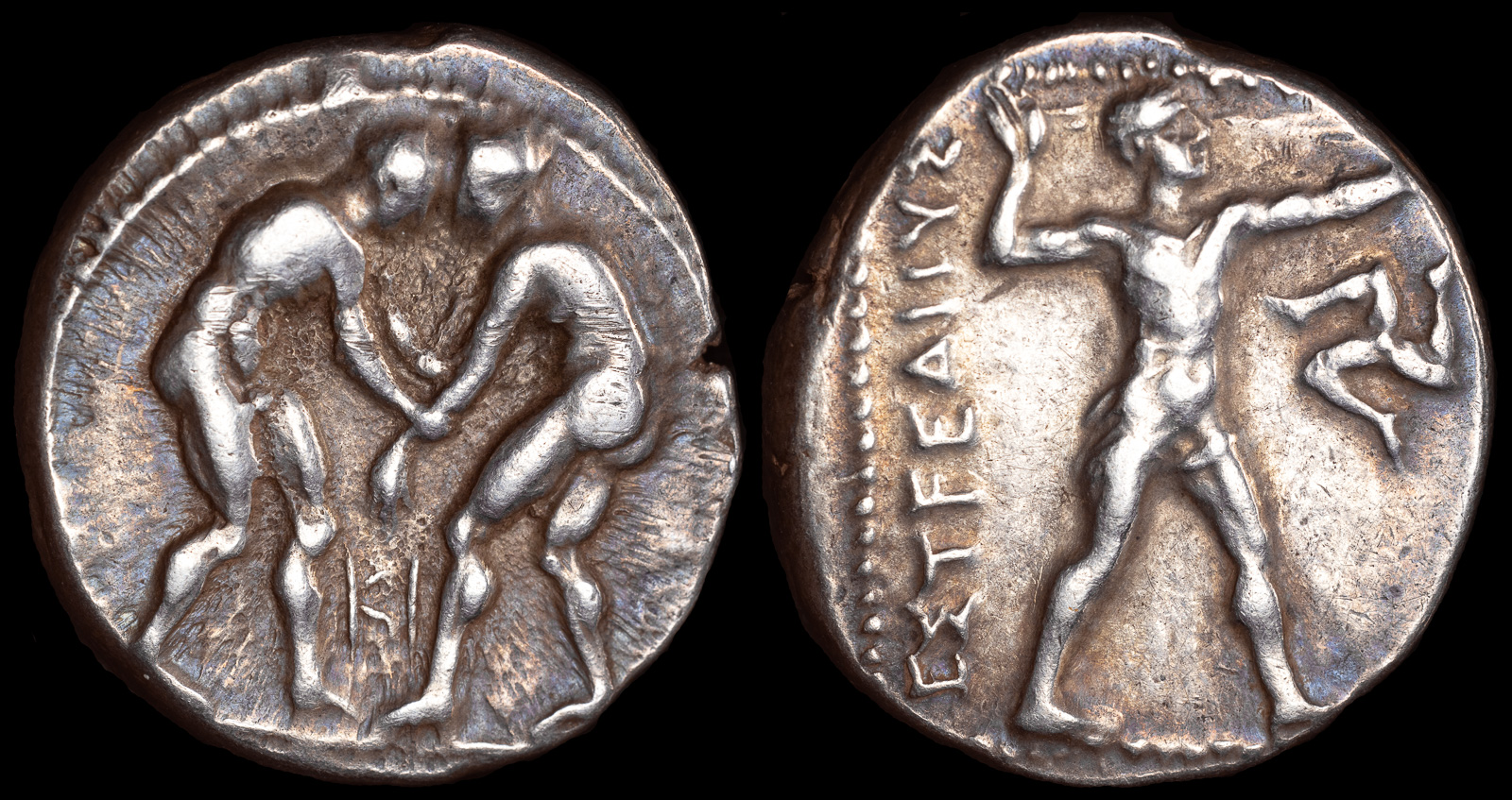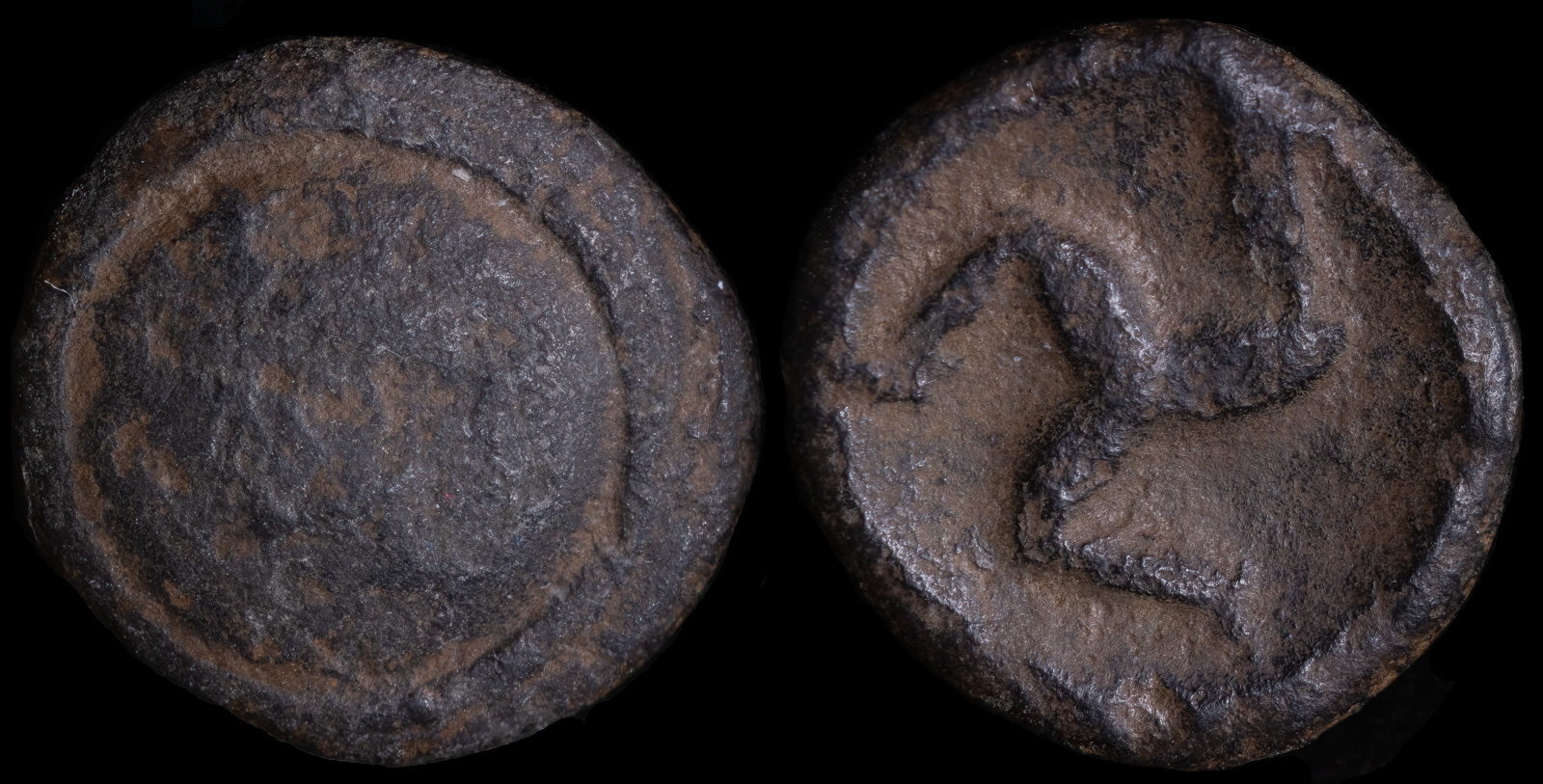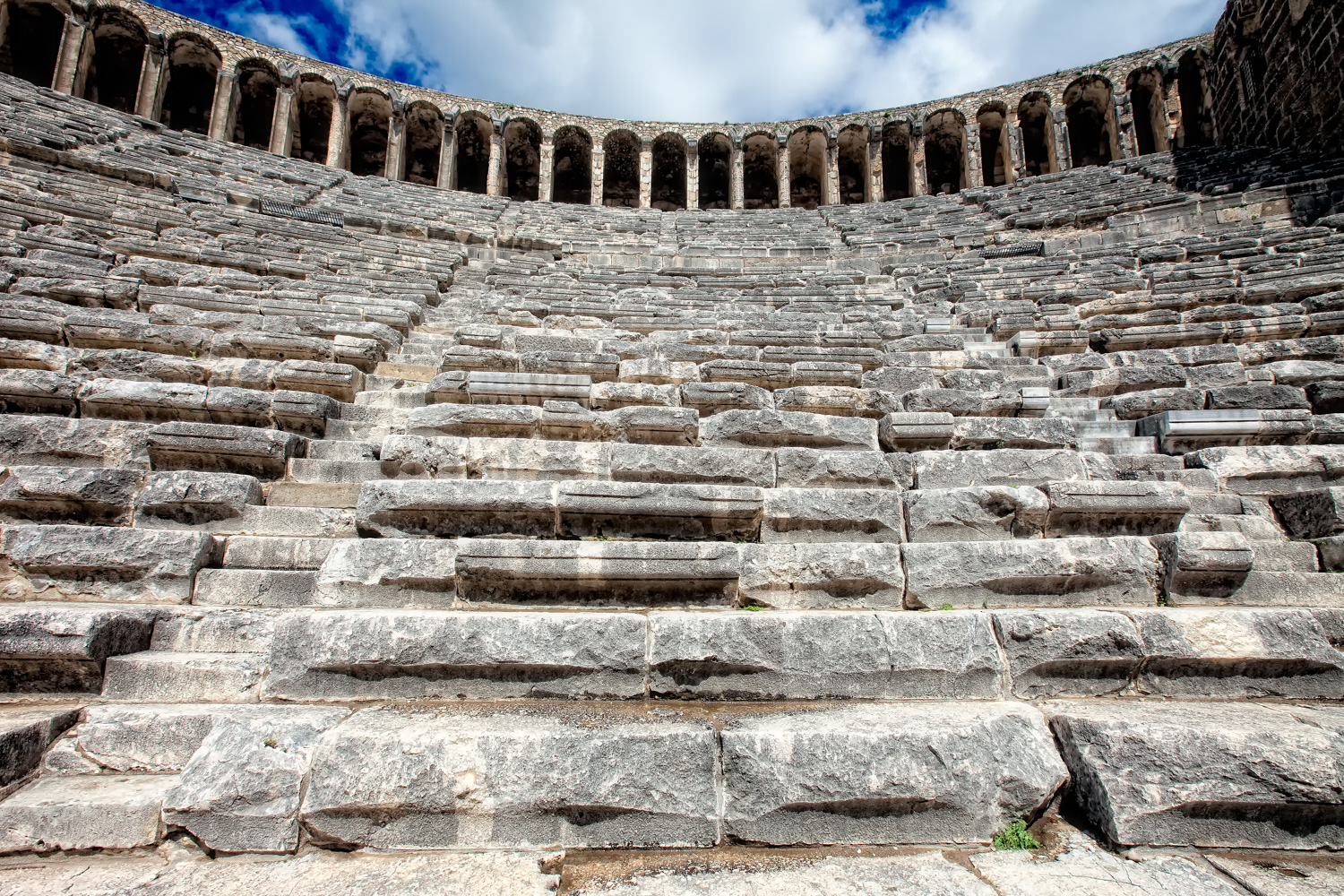
Pamphylia, Aspendos
Circa 380-325 BCE
AR stater, 21mm, 10.78g, 12h
Obv.: Two wrestlers grappling; KI between.
Rev.: EΣTFEΔIIYΣ; Slinger in throwing stance right; triskeles to right; all within pelleted square border.
Tekin Series 4; SNG BN 104
Aspendos was the first ancient ruins I’d ever visited. I saw the amphitheater on a day trip from a Antalya. It was a remarkable place and I had a lot of fun photographing the seats and the patterns they created. Of course, I had no idea then that I’d eventually own a coin from there.
Aspendos had a wide coinage and its issues are common. It took me some time to decide on this one, since I liked the centering and quality, along with the price.
The city had an unfortunate turn during the invasion of Alexander the Great. Their first meeting was peaceful. They surrendered to Alexander without a fight, but requested that no garrison be stationed there. Alexander agreed and moved on, but when he learned shortly afterwards that they had reneged on the deal, he turned around and headed back to Aspendos.
This naturally freaked them out, so they surrendered again. This time, Alexander accepted the surrender, but left a garrison and gave them very harsh terms. Some of the coinage of this city is thought to have come from those terms, which required a hundred talents of gold and four thousand horses every year.
These coins are often collected by those interested in the Olympics. Indeed, the ancient Olympics did feature wrestling, but they were not held at Aspendos. They were held at Elis in the Peloponnese. Further, in the records that have passed down to our time, Aspendos did participate in the Olympic games but never won in wrestling.
The reverse features a slinger, for which Aspendos was famous. These were the sharpshooters of the day. Their range has been estimated at over 400 meters and recent research has found they were as deadly as a .44 Magnum. They therefore had more range than an archer and could carry a large number of bullets into battle. Ancient sling bullets may be often found for sale.
The triskeles, or three bent human legs, was often used on the coinage of Aspendos, especially on their earlier issues.

Pamphylia, Aspendos
late 4th – 3rd century BCE
Ae 13.2mm 1.7g
Obv: Shield with monogram
Rev: Triskeles
SNG France 145
Here are some photos from my visit to Aspendos in 2009.


Aspendos and Chios come under Persian domination.
The Persians re-capture Aspendos.
The Athenian general Thrasybulos threatens Aspendos. The inhabitants collect money to bribe him to leave, but he still orders his trips to trample their crops. Enraged, the Aspendians stab and kill him.
Alexander the Great captures Perge, then marches on to Aspendos. The inhabitants agree to taxes in exhange for being left alone, but as Alexander continues to Side and Sillyon, he learns that Aspendos did not ratify the taxes. Enraged, he turns his army around. Aspendos quickly surrenders, but this time Alexander gives them far harsher terms.
Aspendos surrenders to the Romans. The general Verres plunders its art treasures. Elaios also offers their city.